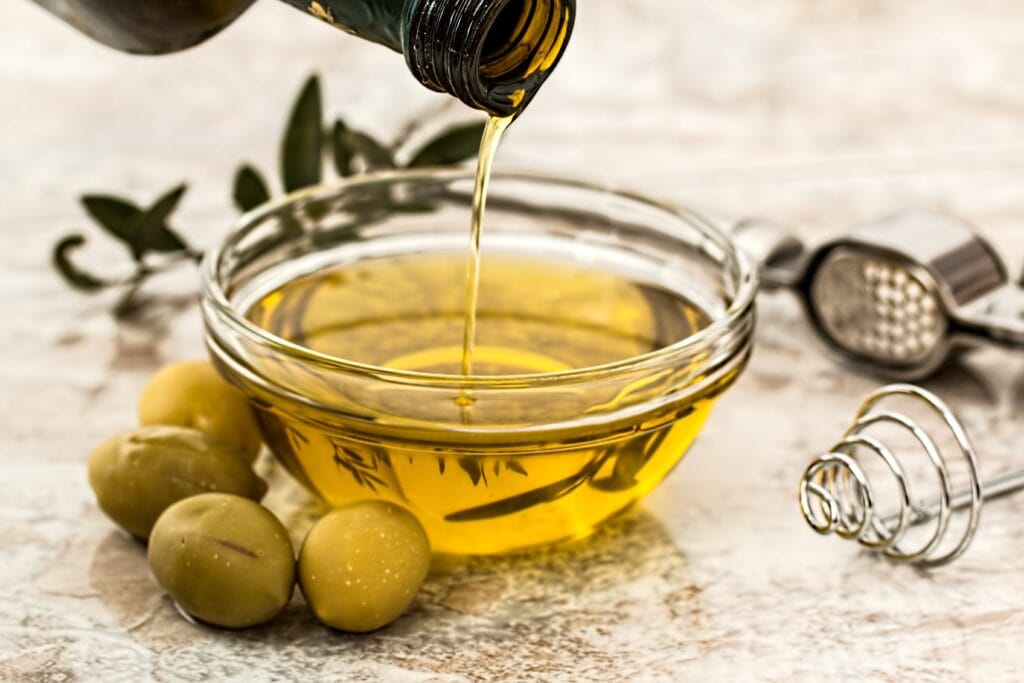Testosterone marks male virility. A good level of testosterone is associated with sexual performance, reproductive function, maintenance of muscle mass and hair growth. So how to boost testosterone ?

How To Boost Testosterone : Introduction to Testosterone and Its Importance in Men’s Health
How To Boost Testosterone : Testosterone, the chief male sex hormone, plays a pivotal role in men’s health. It is primarily produced in the testicles and is critical in the development of male reproductive tissues, including the prostate and testes. It also promotes secondary sexual characteristics such as increased muscle and bone mass and the growth of body hair.
In addition to its physical attributes, testosterone is essential for overall well-being. It contributes to libido, mental health, energy levels, and the maintenance of mood. A balanced level of testosterone is necessary to prevent fatigue, irritability, and depression.
The decline of testosterone levels is a natural part of aging but can also be a result of lifestyle factors and certain health conditions. Low testosterone, or hypogonadism, can lead to several health concerns, including decreased muscle mass, low libido, infertility, bone density loss, and an increase in body fat. This condition also raises the risk factor for chronic diseases such as heart disease, type 2 diabetes, and obesity.
Therefore, maintaining optimal testosterone levels is indispensable for men’s health. A focus on certain natural methods and lifestyle changes can help to boost testosterone levels, promoting general health and combating the decline associated with aging. This article explores five nature-based strategies for enhancing testosterone production, ensuring men can maintain their vitality and health through holistic means.
Understanding the Role of Testosterone in the Body
How To Boost Testosterone :Testosterone is a vital hormone primarily produced in the testicles for men and the ovaries and adrenal glands for women. It plays an essential role in various bodily functions and has a more pronounced impact on men’s health given its higher concentration in the male body. Here are several key functions testosterone facilitates:
- Development of male sex characteristics: Testosterone is crucial during puberty, driving the development of male reproductive tissues, the testes and prostate, as well as promoting secondary sexual characteristics such as increased muscle and bone mass and the growth of body hair.
- Sex drive and reproductive function: In adults, testosterone sustains sex drive and is key to sperm production. It affects sexual arousal and is linked to the overall health of reproductive tissues.
- Muscle and bone health: Testosterone increases muscle mass by enhancing muscle protein synthesis. It also plays a crucial role in bone mineral density. Higher levels of testosterone contribute to stronger bones and reduce the risk of osteoporosis.
- Fat distribution: It also influences body fat distribution, contributing to a leaner body composition by regulating metabolism and the distribution of fat stores in the body.
- Mood and cognitive function: Testosterone levels have been associated with mood regulation and cognitive processes. Studies suggest that hormones may impact overall mood, energy levels, and may help prevent cognitive decline.
- Red blood cell production: Testosterone aids in the production of red blood cells through the bone marrow, crucial for overall cardiovascular health.
Understanding the diverse roles of testosterone elucidates its importance beyond simply attributed to masculinity or physical strength. Balancing testosterone levels is therefore pivotal for maintaining overall health and well-being.
How To Boost Testosterone : The Connection Between Testosterone Levels and Lifestyle

How To Boost Testosterone : Testosterone, the primary male sex hormone, plays a vital role in overall health, influencing muscle mass, bone density, and libido. Lifestyle choices can significantly affect testosterone levels in the body. Key habits and patterns have either a positive or negative impact on hormonal balance.
- Diet: A nutritious diet that includes a balance of fats, proteins, and carbohydrates is crucial. Certain foods like lean meats, fatty fish rich in Omega-3s, and nuts can enhance testosterone production. Overconsumption of processed foods and sugars, on the other hand, can suppress the hormone.
- Exercise: Regular physical activity, especially strength training and high-intensity interval training (HIIT), boosts testosterone levels. Sedentary lifestyles contribute to the decline of this essential hormone, so incorporating consistent exercise is beneficial.
- Sleep: Adequate sleep is essential for testosterone production. Sleep deprivation can lead to a drop in testosterone levels. Experts recommend 7-9 hours of quality sleep each night to maintain optimal hormonal function.
- Stress: Chronic stress elevates cortisol, a hormone that inversely affects testosterone. Managing stress through techniques like meditation, yoga, or even simple deep-breathing exercises can help maintain healthy testosterone levels.
- Alcohol and Substance Use: Excessive alcohol intake and the use of certain drugs can decrease testosterone. It’s important for individuals to moderate their alcohol consumption and avoid substance abuse to maintain healthy hormone levels.
Lifestyle interventions addressing these areas can be effective strategies for naturally boosting testosterone. Individual choices each day cumulatively impact hormonal health, underscoring the importance of a lifestyle approach to hormone balance and well-being.
Dietary Changes to Naturally Increase Testosterone
How To Boost Testosterone, making smart dietary choices is a fundamental step in naturally increasing testosterone levels. Certain nutrients play a pivotal role in hormone production:
- Fats: Long stigmatized, healthy fats are vital. Monounsaturated and omega-3 fatty acids can positively impact testosterone levels. Avocado, nuts, seeds, and fish like salmon and sardines are excellent sources.
- Proteins: Adequate protein intake supports muscle growth, fat loss, and testosterone production. Lean meats, poultry, eggs, and dairy products are good protein sources that should be incorporated into meals.
- Carbohydrates: Carbs are essential for energy and proper function of the hypothalamus-pituitary-gonadal axis, which is involved in hormone regulation. Opt for complex carbohydrates found in whole grains, fruits, and vegetables rather than simple sugars.
- Vitamins and Minerals: Particularly, vitamin D and zinc are crucial for testosterone production. While sunlight is the best source of vitamin D, it can also be found in fortified foods and supplements. Zinc is abundant in foods like oysters, beef, and pumpkin seeds.
Furthermore, specific dietary patterns have been linked with higher testosterone levels:
- Mediterranean Diet: High in healthy fats, lean proteins, fruits, and vegetables, the Mediterranean diet supports overall health including hormone balance.
- Intermittent Fasting: Some studies suggest that intermittent fasting can increase testosterone by regulating hormones that affect its production.
It is also important to limit or avoid certain substances:
- Alcohol: Excessive consumption can negatively impact testosterone levels and overall hormonal balance.
- Processed Foods: High in unhealthy fats, sugars, and artificial additives, processed foods may disrupt hormone levels and should be consumed sparingly.
Consulting with a healthcare professional before making significant dietary changes is advised, as individual health conditions and nutritional needs can vary greatly.
Key Nutrients Essential for Testosterone Production

How To Boost Testosterone : Adequate consumption of particular nutrients is critical for the body’s production of testosterone. Ensuring a diet rich in the following vitamins and minerals can support natural testosterone levels:
- Vitamin D: Often termed the “sunshine vitamin,” vitamin D has been linked to higher levels of testosterone. Men with sufficient vitamin D levels have been observed to have higher testosterone than those with a deficiency. Safe sun exposure and vitamin D supplementation can help maintain these levels.
- Zinc: This mineral plays a vital role in hormone production, including testosterone. Deficiencies in zinc can result in hypogonadism, where the body does not produce enough testosterone. Foods such as oysters, beef, and pumpkin seeds are rich in zinc.
- Magnesium: Magnesium assists in the process of testosterone production and is also important for overall health. Its presence in foods like almonds, spinach, and cashews makes it an accessible nutrient to include in a balanced diet.
- Fatty Acids – Omega-3 and Omega-6: These essential fats are crucial for testosterone production and overall hormonal health. They can reduce the levels of sex hormone-binding globulin (SHBG), a protein that binds to testosterone, which when in excess, can lower available testosterone. Good sources include fish, walnuts, and flaxseeds.
- B-vitamins, especially B6 and B12: B-vitamins assist in various bodily functions, including testosterone production. Vitamin B6 helps the body to conserve the use of testosterone by inhibiting its conversion to estrogen, while B12 is important for the maintenance of blood and nerve cells which can impact hormone production.
Ensuring adequate amounts of these nutrients through diet or supplementation may help support the body’s natural testosterone production. However, an individual should consult with a healthcare provider before starting any supplementation.
The Power of Proteins, Fats, and Carbohydrates in Hormonal Balance
To understand how to boost testosterone, one must first understand the critical roles of proteins, fats, and carbohydrates in hormonal balance. The macronutrients from the foods we consume can significantly influence hormone production and function within the body, including the synthesis of testosterone.
Proteins
Proteins are the building blocks of life, and when it comes to hormone health, they are integral for testosterone production. Adequate protein intake supports the release of hormones that control appetite and promote satiety, which can help maintain a healthy weight and thus positively affect testosterone levels.
- Ensure consumption of lean animal sources such as chicken, turkey, or fish.
- Include plant-based proteins like beans, lentils, and chickpeas to diversify sources.
Fats
Fats, particularly healthy fats, are essential for the production of testosterone. Cholesterol, derived from fat, is the precursor for testosterone production in the body.
- Opt for sources of monounsaturated fats like avocados, nuts, and olive oil.
- Include omega-3 fatty acids found in fish like salmon and mackerel to support hormone synthesis and reduce inflammation.
Carbohydrates
Carbohydrates play a crucial role by providing the energy required for the body to function optimally. However, the quality of carbohydrates matters for hormonal balance.
- Focus on complex carbohydrates such as those found in whole grains, vegetables, and fruits, which provide sustained energy release.
- Limit intake of simple sugars and refined carbs to avoid spikes and crashes in blood sugar levels that can disrupt hormone balance.
It is evident that a balanced diet rich in quality proteins, fats, and carbohydrates can support and maintain healthy testosterone levels. Tailoring one’s diet to include a good mix of these macronutrients, while paying attention to the overall quality and portion sizes, can be a powerful strategy in regulating hormonal health naturally.
Foods to Include in Your Testosterone-Boosting Diet Plan

When looking to naturally boost testosterone levels through diet, consider incorporating the following foods, which have been identified as potentially supportive for this purpose:
- Oysters: Oysters are well-known for their high zinc content, an essential mineral for testosterone production and male fertility.
- Leafy green vegetables: Spinach, Swiss chard, and kale are high in magnesium, a nutrient that can positively influence testosterone levels.
- Fatty fish: Salmon, mackerel, and sardines are rich in Vitamin D and omega-3 fatty acids, both of which have been linked to increased testosterone production.
- Extra-virgin olive oil: Acting as a healthy fat source, extra-virgin olive oil may enhance the body’s testosterone production.
- Eggs: The cholesterol found in egg yolks can serve as a building block for testosterone. The vitamins D, B6, and B12 in eggs also support hormonal balance.
- Pomegranates: This ancient fruit is associated with testosterone increase and improved sexual performance due to its antioxidants.
- Lean meats: Beef, especially grass-fed, contains nutrients like protein, iron, magnesium, and zinc, which help maintain optimal testosterone levels.
- Garlic: Although not a major testosterone booster, garlic contains allicin which can lower cortisol levels, allowing for increased testosterone production.
- Ginger: Some studies suggest that ginger supplementation may help enhance testosterone production in men.
- Berries and grapes: The resveratrol in grapes and certain berries is believed to inhibit aromatase, an enzyme that converts testosterone into estrogen.
Including these foods in one’s diet while maintaining a balanced nutrition and engaging in regular physical activity can help support the body’s natural testosterone production. It’s important to remember that these dietary changes should be part of an overall healthy lifestyle to be effective.
Physical Activity and Its Impact on Testosterone Levels
How To Boost Testosterone, Engaging in regular physical activity is a pivotal strategy for sustaining and increasing testosterone levels in the body. Exercise, especially when it involves resistance training such as weightlifting, can provoke a substantial boost in testosterone production. It has been demonstrated that lifting heavy weights with a focus on large muscle groups can yield the greatest surge in testosterone levels.
- Short and Intense Workouts: High-intensity interval training (HIIT) can also elevate testosterone levels. These workouts involve short bursts of intense exercise followed by periods of rest or lower intensity. This type of training not only supports testosterone levels but also improves overall fitness, metabolism, and body composition.
- Consistent Exercise Routine: Maintaining a regular exercise schedule is key. Inactivity can lead to a decrease in testosterone levels, making it essential to engage in consistent physical activity. While sporadic exercise can provide a temporary boost, regular physical training encourages a stable and sustained level of testosterone.
- Avoid Overtraining: It’s important to balance exercise frequency and intensity to prevent overtraining. Excessive physical stress from prolonged, intense exercise can lead to elevated cortisol levels which may negatively impact testosterone.
- Diverse Workout Regimens: Incorporating a mix of resistance training, aerobic exercises, and flexibility workouts can optimize testosterone levels and general health. Activities such as swimming, cycling, and yoga contribute to overall well-being, which in turn can have positive effects on hormone balance.
Physical activity acts as a natural stimulant for testosterone production, fostering improvements in muscle mass, energy levels, and mood. However, it must be approached thoughtfully and consistently to ensure that exercise remains a beneficial contributor to hormonal health.
Strength Training: A Critical Component for Hormonal Health
How To Boost Testosterone, Strength training, also known as resistance or weight training, plays a pivotal role in regulating and promoting hormonal balance, particularly regarding testosterone levels in the body. Testosterone, a crucial hormone for both men and women, supports muscle growth, fat loss, and overall well-being.
When individuals engage in strength training, their bodies are subjected to stress in the form of resistance. This stress, in turn, signals the need for physiological adaptations. Among the numerous responses, the endocrine system reacts by synthesizing and releasing various hormones, including testosterone. The process involves the following mechanisms:
- Muscle Damage and Repair: Strength training causes microscopic tears in muscle fibers, which the body repairs by fusing fibers to increase muscle mass. This repair process is testosterone-dependent, as the hormone aids in protein synthesis necessary for muscle recovery.
- Neuroendocrine Response: Exercise prompts the hypothalamic-pituitary-gonadal axis to stimulate the production of luteinizing hormone, which signals the testes in men (and the ovaries in women, albeit in much smaller amounts) to produce testosterone.
- Reduction in Fat Mass: Resistance training effectively reduces body fat, which is beneficial because adipose tissue can convert testosterone into estrogen, thus lowering available testosterone levels.
Incorporating strength training into one’s routine should be approached with strategy and caution. It’s crucial to focus on compound movements like squats, deadlifts, and bench presses to engage multiple muscle groups, which can amplify the hormonal benefits. Moreover, it’s essential to allow adequate time for recovery, as overtraining can lead to elevated cortisol levels, which can negatively impact testosterone.
To maximize the hormonal health benefits of strength training, one should aim for consistent workouts, varying intensity and volume to prevent plateaus and continuously challenge the body. This consistent, dedicated approach to resistance training could lead to significant improvements not only in muscular strength and body composition but also in hormonal health and testosterone levels.
How To Boost Testosterone : The Benefits of High-Intensity Interval Training (HIIT) on Testosterone
How To Boost Testosterone, High-Intensity Interval Training, commonly known as HIIT, has emerged as a powerful exercise methodology to naturally boost testosterone levels in men. This type of exercise involves short bursts of intense activity alternated with brief periods of rest. The impact of HIIT on testosterone is multifaceted and scientifically supported.
- Hormonal Response: HIIT causes a robust hormonal response. The intense exertion during HIIT sessions increases the production of luteinizing hormone, which signals the testes to produce testosterone. This biological response contributes to elevated circulating testosterone levels.
- Body Composition Optimization: By incorporating HIIT into fitness routines, body composition is improved through the reduction of fat mass and the increase of lean muscle mass. Enhanced muscle mass is linked with higher resting testosterone levels, as muscle tissues are vital for testosterone production and regulation.
- Stress Reduction: Stress and cortisol, the stress hormone, can inversely affect testosterone levels. Since HIIT workouts are typically shorter in duration, they can reduce the time-related stress associated with long workout sessions. Short, intense workouts may also mediate stress better than persistent and prolonged exercise, thus aiding in the preservation and promotion of testosterone levels.
- Improved Metabolic Health: HIIT effectively boosts metabolism, not only during the workout but also for hours afterward. The improved metabolic rate assists in maintaining a healthy weight, which is essential because obesity is a known risk factor for reduced testosterone levels.
- Endorphin Release: Like many forms of exercise, HIIT releases endorphins, which are feel-good hormones that could indirectly support testosterone production by improving mood and overall well-being.
In essence, HIIT can be a potent exercise option for those looking to enhance their testosterone levels naturally. It offers a time-efficient workout while providing the necessary physiological stressors that elicit a beneficial hormonal response. With consistent practice, HIIT can yield significant improvements in body composition, stress levels, metabolic health, and thereby bolster testosterone production.
The Impact of Sleep on Hormone Levels: Maximizing Testosterone During Rest
How To Boost Testosterone, Adequate sleep is a cornerstone for hormone regulation, including the synthesis and secretion of testosterone, a vital male hormone influencing muscle mass, libido, and overall mens’ physical health. Chronic sleep deprivation has been consistently linked to reduced testosterone levels. Studies suggest that sleeping less than the recommended 7-9 hours per night can significantly decrease testosterone production in men.
During sleep, particularly in the rapid eye movement (REM) phase, the body increases testosterone production. This production peaks during the sleep cycle and relies heavily on the duration and quality of sleep. It is during the deeper stages of sleep that the body provides the ideal environment for testosterone synthesis, which is why disturbances in sleep architecture can lead to hormonal imbalances, including a reduction in testosterone levels.
Strategies to maximize testosterone production during rest include:
- Maintaining a consistent sleep schedule: Going to bed and waking up at the same times daily can regulate the sleep-wake cycle, which optimizes hormone production.
- Creating a bedtime routine: A pre-sleep ritual including relaxation techniques can improve sleep quality, thus supporting healthy testosterone levels.
- Ensuring a sleep-conducive environment: A cool, dark, and quiet room is optimal for sleep and, by extension, for testosterone production.
- Limiting exposure to blue light before bed: Reducing screen time from electronic devices in the evening can promote melatonin production, the hormone responsible for sleep regulation, which indirectly supports testosterone synthesis.
- Avoiding large meals and caffeine before bedtime: These can disrupt sleep patterns, which may affect hormone regulation.
By prioritizing good sleep hygiene, individuals can create an environment that supports robust testosterone levels, synergistically enhancing other efforts to naturally boost this essential hormone.

How to boost testosterone : Natural Supplements That Can Support Testosterone Levels
How To Boost Testosterone, When considering the enhancement of testosterone levels naturally, certain supplements emerge as potential aids. It’s important to note that while these supplements may support hormone health, they should not replace medical advice or treatment. Here are some noteworthy natural supplements:
- Vitamin D: Often referred to as the “sunshine vitamin,” Vitamin D plays a pivotal role in hormone production, including testosterone. Research indicates that Vitamin D supplementation can potentially boost testosterone levels, especially in those with Vitamin D deficiencies.
- Zinc: This mineral is essential for testosterone production and overall endocrine function. A deficiency in zinc is often associated with reduced testosterone levels. Zinc supplementation can help support testosterone levels, particularly in individuals with low zinc status.
- Fenugreek: Fenugreek has been traditionally used to support libido and appears to have compounds that might help in maintaining healthy testosterone levels. Some clinical studies suggest that fenugreek supplementation can positively impact testosterone levels and sexual function in men.
- Ashwagandha: An adaptogen herb, Ashwagandha, is noted for its stress-reducing effects. Stress is known to negatively affect testosterone levels, and by mitigating stress, Ashwagandha may consequently support healthier testosterone levels.
- D-Aspartic Acid: As an amino acid regulator, D-Aspartic Acid plays a role in the production and release of testosterone. Studies have shown mixed results, but some suggest that supplementation could increase testosterone levels in individuals with low levels or in those who are infertile.
- Magnesium: Magnesium plays various roles in the body, including the functioning of enzymes necessary for testosterone production. Magnesium supplementation might support increased testosterone levels, particularly when combined with regular exercise.
Before incorporating any supplements into your regimen, consult with a healthcare professional to ensure safety and appropriate dosage. Remember that no supplement is a substitute for a healthy lifestyle, which is foundational to hormonal health.
How to boost testosterone : Alcohol, Smoking, and Beyond
How To Boost Testosterone, the optimization of testosterone levels can be significantly influenced by lifestyle choices. For individuals looking to boost their testosterone naturally, it’s critical to evaluate and adjust their daily habits, particularly regarding alcohol consumption and smoking.
- Alcohol Moderation: Chronic and excessive alcohol intake is known to decrease testosterone levels in men. Alcohol disrupts the balance of the endocrine system and can lead to a reduction in testosterone production. Moderation in consumption is key, with recommendations often suggesting no more than two drinks per day for men, and one for women. For those serious about increasing testosterone, it may be wise to further limit or even eliminate alcohol.
- Quit Smoking: Smoking has a detrimental effect on overall health and can specifically harm testosterone levels by affecting the Leydig cells in the testes, which are responsible for testosterone production. Quitting smoking is one of the most impactful steps one can take not only for boosting testosterone but also for improving general health and reducing the risk of a multitude of smoking-related diseases.
Beyond these well-known vices, other lifestyle adjustments can also contribute to higher testosterone levels:
- Nutrition: Consuming a diet rich in healthy fats, proteins, and certain vitamins and minerals, such as vitamin D and zinc, supports testosterone synthesis. Processed foods and those high in sugar should be avoided as they can lead to insulin resistance, which may be associated with lower testosterone levels.
- Stress Reduction: Chronic stress raises cortisol levels, which is inversely related to testosterone. Practicing stress-reducing activities such as meditation, mindfulness, or yoga can aid in lowering cortisol levels, thereby potentially enhancing testosterone production.
- Regular Exercise: Engaging in regular physical activity, particularly weight training and high-intensity interval training (HIIT), has been shown to naturally increase testosterone levels. It is important, however, to avoid overtraining as this can lead to elevated cortisol and decreased testosterone.
By incorporating these lifestyle adjustments, individuals can create an environment favorable for optimal testosterone production, and in doing so, possibly improve their overall well-being and health.

How To Boost Testosterone : Creating a Sustainable Testosterone-Boosting Lifestyle
How To Boost Testosterone, to craft a sustainable testosterone-boosting lifestyle, one must focus on longevity and consistency in their health practices. The foundation of such a lifestyle is built upon natural and holistic approaches to well-being.
Firstly, it is essential to prioritize sleep quality. Research has consistently underscored the importance of adequate, restful sleep for maintaining optimal testosterone levels. Individuals should strive for 7-9 hours per night, creating a sleep-conducive environment that is dark, quiet, and cool.
Secondly, exercise—particularly strength training and high-intensity interval training—has been proven to have a positive effect on testosterone levels. Incorporating a regular exercise regimen that includes these forms of activity can help naturally boost testosterone over time.
In addition, a balanced diet rich in nutrients plays a critical role. Focusing on whole foods, especially those high in zinc, vitamin D, and omega-3 fatty acids, assists in supporting optimal testosterone production. Limiting processed foods, excess sugar, and alcohol can prevent negative impacts on testosterone levels.
How To Boost Testosterone, Managing stress through mindfulness techniques such as meditation and yoga can also benefit hormonal balance. Chronic stress leads to elevated cortisol levels, which can negatively affect testosterone. By engaging in regular stress-reducing practices, one can maintain a healthier hormonal profile.
Finally, consider environmental factors and strive to minimize exposure to endocrine-disrupting chemicals found in certain plastics and personal care products. Opting for natural alternatives can reduce the risk of inadvertently suppressing testosterone production.
By integrating these strategies into daily life, individuals can establish a sustainable approach to improving and maintaining healthy testosterone levels, thereby enhancing overall well-being and quality of life.





